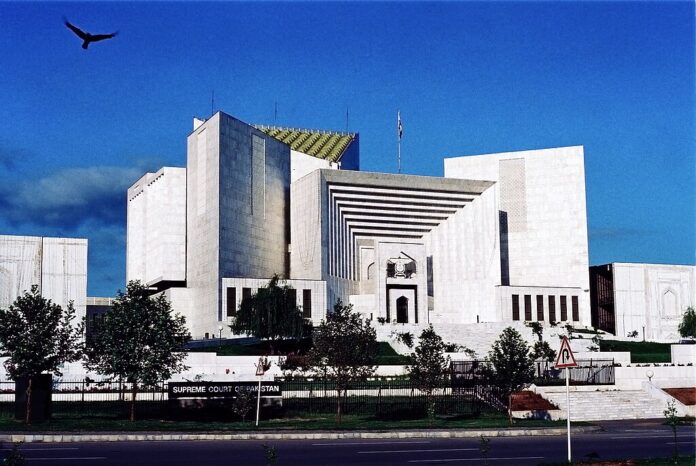Chief Justice Qazi Faez Isa leads the bench as SC takes action
In a significant development, the Supreme Court of Pakistan began hearing a case based on complaints raised by judges of the Islamabad High Court regarding interference from intelligence agencies in their judicial work. Chief Justice Qazi Faez Isa led the six-member bench, which included Justices Syed Mansoor Ali Shah, Jamal Khan Mandokhail, Athar Minallah, Musarrat Hilali, and Naeem Akhtar Afghan.
Under Article 184(3) of the Constitution, the Supreme Court holds extraordinary powers to address matters of public importance concerning fundamental rights. This includes the authority to summon individuals, government officials, or documents from any department. The Court can take action based on petitions or suo moto notices.
Embed from Getty ImagesThe case was initiated following a letter from judges of the Islamabad High Court, including Justice Mohsin Akhtar Kayani, Justice Tariq Mahmood Jahangiri, Justice Babar Sattar, Justice Sardar Ejaz Ishaq Khan, Justice Arbab Muhammad Tahir, and Justice Saman Raffat Imtiaz, addressed to the Supreme Judicial Council (SJC). In their letter, the IHC judges sought guidance on the interference of intelligence agencies in their judicial functions.
Subsequently, the Supreme Court took suo moto action on the issue, demonstrating its commitment to upholding judicial independence. Additionally, both the Lahore High Court and the Islamabad High Court convened Full Court meetings in response to the judges’ concerns. During these meetings, the IHC judges unanimously agreed to respond institutionally to any future attempts by intelligence agencies to interfere with their judicial work.
As the hearing commenced, all eyes were on the Supreme Court, as it embarked on a critical journey to address these serious allegations and uphold the integrity of the judiciary.
